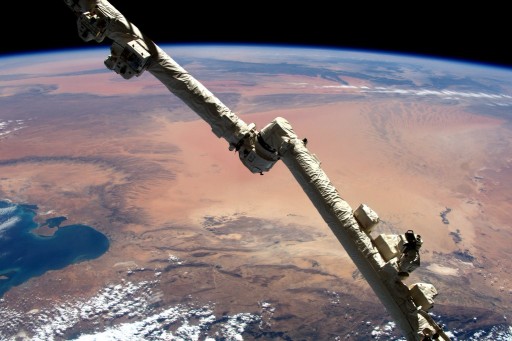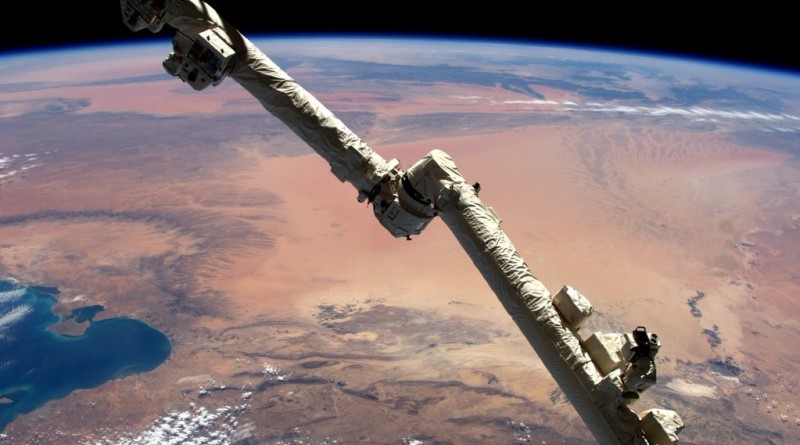ISS Operations Update – March 9, 2016

Experiments:
NeuroMapping Experiment Ops [Spaceflight Effects on Neurocognitive Performance: Extent, Longevity, and Neural Bases (NeuroMapping) examined whether long-duration exposure to microgravity causes changes in the brain, including brain structure and function, motor control, and multi-tasking, as well as measuring how long it takes for the brain and body to recover from those possible changes. The experiment uses MI and FMRI scans before and after spaceflight and computer-based Mental Rotation Tests while on ISS.]
Fine Motor Skills [Fine Motor Skills uses a tablet touchscreen application to monitor degradation in fine motor abilities over the course of an extended exposure to microgravity. A drop in fine motor skills can lead to problems when crew members are tasked with medical treatment, repairing sensitive equipment and interacting with touch-based equipment. Tests utilized by this study include multidirectional pointing, dragging, shape tracing, and object manipulation to create a knowledgebase that will allow scientists to evaluate the risk of fine motor performance decrements due to long-duration exposure to microgravity.]
MAGVECTOR – Power Supply Switch & connection of hardware to USB for experiment run. [The MagVector study is an interesting experiment that will expose a variable electrical conductor to Earth’s magnetic field to study the interaction between the conductor and the magnetic field in a range of different environments using extremely sensitive magnetic sensors installed around the conductor. The experiment will be installed in the European Drawer Rack that will provide a cooled vacuum to have the experiment take place in vacuum conditions. Earth’s magnetic field vector and overall field strength is measured in parallel to provide data for comparisons.]
Identification – Micro-Accelerometer Data Download [The Identification Payload records structural dynamics data inside the individual modules of the Russian Segment to provide structural data to improve spacecraft design.]
Food Frequency Questionnaire
OASIS – Observation and Analysis of Smectic Islands in Space – Experiment Run & Camera re-alignment [“Observation and Analysis of Smectic Islands in Space” will study the unique behavior of liquid crystals in microgravity with special focus on their overall motion and merging of crystal layers which is known as the formation of smectic islands. Liquid crystals are widely used in technology, being employed in LCD TV screens, laptop screens, watches and other electronics with flat panel displays. The also find use in soaps and membranes. Studying liquid crystals in microgravity will provide new insights into two dimensional system physics of complex fluids. Findings may lead to understanding of well aligned, very high speed electro-optic devices that could find use in embedded ferroelectric liquid crystal micro-displays.]
Systems/Maintenance:
Nominal Inspections/Servicing Tasks (Morning Inspection, Caution & Warning Panel Check, Sozh System Maintenance) (Russian Crew)
PMM Stowage Operations
Waste & Hygiene Compartment Water Fill & Troubleshooting
Soyuz TMA-19M Emergency Evacuation and Descent Drill
C2V2: Tim Peake routed and installed data cables for the C2V2 (Common Communications for Visiting Vehicles) system, connecting internal radio and control equipment with external antennas, installed last year.
Tweets from Space:
Sometimes it seems as if Earth isn't there and our cities are floating with us in space too. #Principia #timelapsehttps://t.co/P1TThCbDpp
— Tim Peake (@astro_timpeake) March 9, 2016
Angry storm clouds over #Texas and the Gulf of Mexico today — #weather is about perfect here. @Space_Station pic.twitter.com/I0jy389tfF
— Tim Kopra (@astro_tim) March 9, 2016
I never imagined a desert could look so magnificent pic.twitter.com/8EvfVkm5V5
— Tim Peake (@astro_timpeake) March 9, 2016
Another perspective from @Space_Station on #Texas storms today. pic.twitter.com/R3qtOzKSDp
— Tim Kopra (@astro_tim) March 9, 2016
Desert and mountains in #Chile . @Space_Station #Explore pic.twitter.com/R8jFHuDrOR
— Tim Kopra (@astro_tim) March 9, 2016

